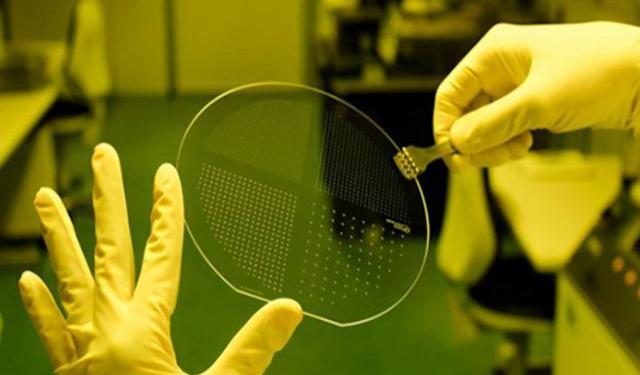
Text/Ball Review/Zi Yang Correction/Zhi Qiu
In the context of serious global core shortage, TSMC, as the leader of the chip foundry industry, has naturally become a fragrant feast, and many relevant departments of the country have invited TSMC to establish factories in the local area to alleviate the problem of lack of cores in enterprises around the world.
For now, the United States and Japan have pledged to provide subsidies to help TSMC reduce the cost of building a plant.
There is no such thing as a free lunch
For TSMC, going to the United States and Japan to establish a foundry not only meets the needs of its own expansion, but also can get subsidies for building factories, which is undoubtedly the best of both worlds.
However, there is no free lunch in the world, and it is not easy for TSMC to get subsidies from the United States and Japan, of which the subsidies from the United States have not yet been issued; and the Japanese side has put forward new requirements for subsidies.
January 12 people's information news, Japan for TSMC to provide factory subsidies to make new regulations, the Japanese side said that semiconductor manufacturers want to get the factory subsidy funds, need to agree to the relevant conditions, the construction of factories at least in Japan to maintain chip production for ten years.
According to the author's understanding, TSMC went to Japan to establish a chip factory this time, and the Japanese relevant parties provided subsidies of 3.47 billion US dollars.
In other words, if TSMC wants to obtain the $3.47 billion subsidy, it must be deeply bound to Japan for ten years, and if TSMC cannot do it, then the Japanese side will have to withdraw the subsidy.
It is worth mentioning that the Japanese side is still soliciting other suggestions and putting forward more requirements for chip companies that come to Japan to build factories, which may include increasing production when there is a shortage of chips, and continuously increasing investment in factories established in Japan.
Perhaps TSMC did not expect that to build a factory in Japan, the country would make so many demands. It can be seen that it is not easy for TSMC to get subsidies from Japan.
The purpose of the request made by Japan
At present, in the world, no country requires companies that build factories in their own countries to ensure ten years of chip production capacity, and it can be said that Japan has opened a world precedent.
Why is Japan making such a request? First of all, we must understand that the main reason why Japan proposed a subsidy policy to attract TSMC to build a factory is to boost Japan's domestic semiconductor manufacturing industry.
It is worth mentioning that the Japanese media reported that Japan must complete the mass production of the semiconductor manufacturing 2nm process within ten years.
However, if Japan wants to achieve the goals set, it must rely on the head companies in the field of chip foundry, and it is precisely because of this that the Japanese side will choose to deeply bundle TSMC.
Not only that, with the acceleration of industrial intelligence, the demand for chips is also getting higher and higher, such as aerospace, new energy vehicles and other fields need a large number of chips as support. Japan's local chip manufacturing industry is relatively backward, even if it has formulated a plan to revive the Japanese semiconductor manufacturing industry, it is still difficult to complete in the short term, so it can only rely heavily on TSMC.
In my opinion, there is another very important reason for Japan's new requirements to prevent subsidy funds from being wasted.
In fact, after the Japanese side proposes a subsidy strategy, it cannot guarantee that chip manufacturers, including TSMC, will not take money and do not do things, or do not act actively after taking money, so that Japan's subsidy funds will be wasted.
It is precisely because of this that the Japanese side will put forward relevant requirements and come up with a ten-year production plan to prevent chip manufacturers from making moths.
So, does the request made by Japan have an impact on TSMC? In the author's opinion, just to provide 10 years of production capacity for Japan, the impact on TSMC is not large, on the one hand, TSMC in Japan to establish a 28nm factory, for Japan to provide 10 years of production capacity is not harmful;
On the other hand, TSMC itself has been continuously expanding its production capacity, in essence, the additional conditions proposed by Japan will not affect the capacity output of Japanese chip factories, and even TSMC can obtain a large number of chip orders from Japan.
It should be known that Japan has many well-known companies, such as Toyota, Honda, Sony, etc., and it is possible to establish a deep cooperative relationship with TSMC to increase TSMC's revenue in Japan.
Not only that, Japan has a leading position in chip materials, such as photoresist products, and Japanese related companies are monopolizing the market.
For TSMC, the establishment of factories in Japan can solve the problem of chip material supply, and at the same time, it can also reduce unnecessary costs.
Write to the end
From the above point of view, the requirements put forward by Japan seem to be excessive, but the impact on TSMC is not large, to some extent, it is more conducive to the development of TSMC in the field of chip foundry, such as obtaining the support of Japanese chip material giants.
In general, as long as the Japanese side does not put forward too many requirements, the author believes that building a factory in Japan will bring many benefits to TSMC.